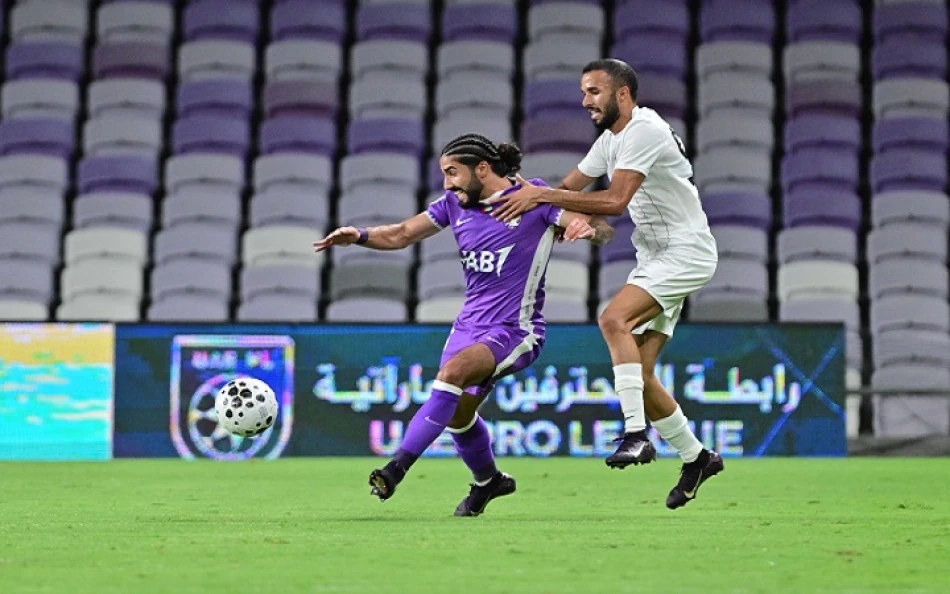
Emirates Football Federation Crisis and Al Ain FC's Impending Resolution
Al Ain FC and UAE Football Association Step Back from Brink After Referee Controversy
A heated dispute between Al Ain Football Club and the UAE Football Association over controversial refereeing decisions appears to be cooling down, with both sides opting for diplomatic channels over public confrontation. The conflict, which erupted after Al Ain's match against Al-Bataeh in the opening round of the ADNOC Pro League, threatened to damage UAE football's reputation both domestically and internationally.
From Public Spat to Private Diplomacy
The crisis began when Al Ain issued a public statement criticizing the refereeing in their match against Al-Bataeh, prompting a stern response from the UAE Football Association. The federation initially rejected any questioning of their referees' integrity and threatened legal action against the club.
However, recent developments suggest both parties have recognized the potential damage of continued public warfare. Al Ain has now submitted a formal, measured letter to the federation, presenting their concerns about refereeing decisions through technical analysis rather than inflammatory rhetoric.
Strategic Retreat Signals Maturity
The club's latest communication represents a significant shift in tone. While maintaining their position that refereeing errors nearly cost them crucial points, Al Ain also praised the federation's efforts in developing the game, particularly highlighting the early adoption of VAR technology in the region and initiatives promoting fair play.
This balanced approach indicates Al Ain's management sought to register their protest without escalating the conflict further—a calculated move that preserves their competitive interests while avoiding sanctions.
Federation's Measured Response
The UAE Football Association's reply demonstrated similar restraint, acknowledging Al Ain's concerns and emphasizing their commitment to continuous review of officiating standards. The federation outlined their strategic plan for developing the refereeing sector while thanking Al Ain for their contributions to football development.
This diplomatic response suggests the federation prefers institutional mechanisms and internal reviews over public disputes—a approach that protects the league's credibility while maintaining authority.
Broader Implications for UAE Football
The de-escalation reflects growing sophistication in UAE football governance. Unlike similar disputes in other leagues that have spiraled into prolonged conflicts, both parties here recognized the stakes extended beyond their immediate interests to encompass the league's regional reputation and commercial value.
Lessons from Regional Football Politics
The UAE's handling contrasts sharply with referee controversies in neighboring leagues, where public feuds have sometimes overshadowed sporting achievements. The quick pivot to private diplomacy demonstrates institutional maturity that could serve as a model for conflict resolution in regional football.
This approach becomes particularly important as Gulf leagues compete for international attention and investment, where governance disputes can deter sponsors and broadcasters.
On-Field Focus Returns
For Al Ain, the priority now shifts to football matters. Serbian coach Vladimir Ivetic faces the challenge of insulating his squad from the controversy's aftermath as they prepare for Saturday's match against Dibba Al-Fujairah in the league's second round.
The club has resumed training with emphasis on technical preparation, attempting to separate off-field distractions from their on-field ambitions. Al Ain's quest to return to domestic prominence after an extended trophy drought requires full focus on sporting rather than administrative battles.
The resolution of this dispute may prove more significant than the original controversy, demonstrating that UAE football's institutions can manage conflicts professionally while preserving the league's integrity and competitive balance.
Most Viewed News

 Sara Khaled
Sara Khaled






